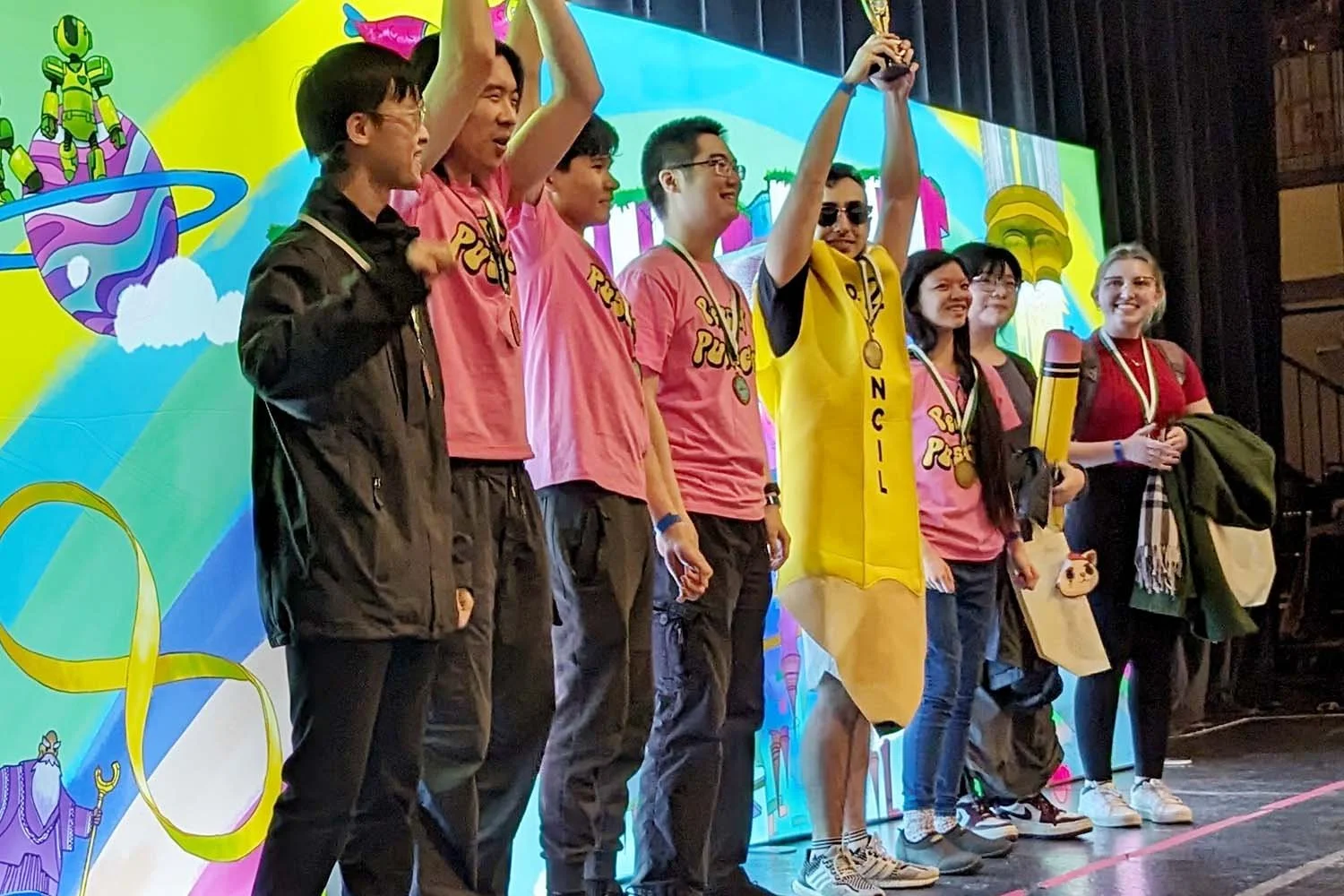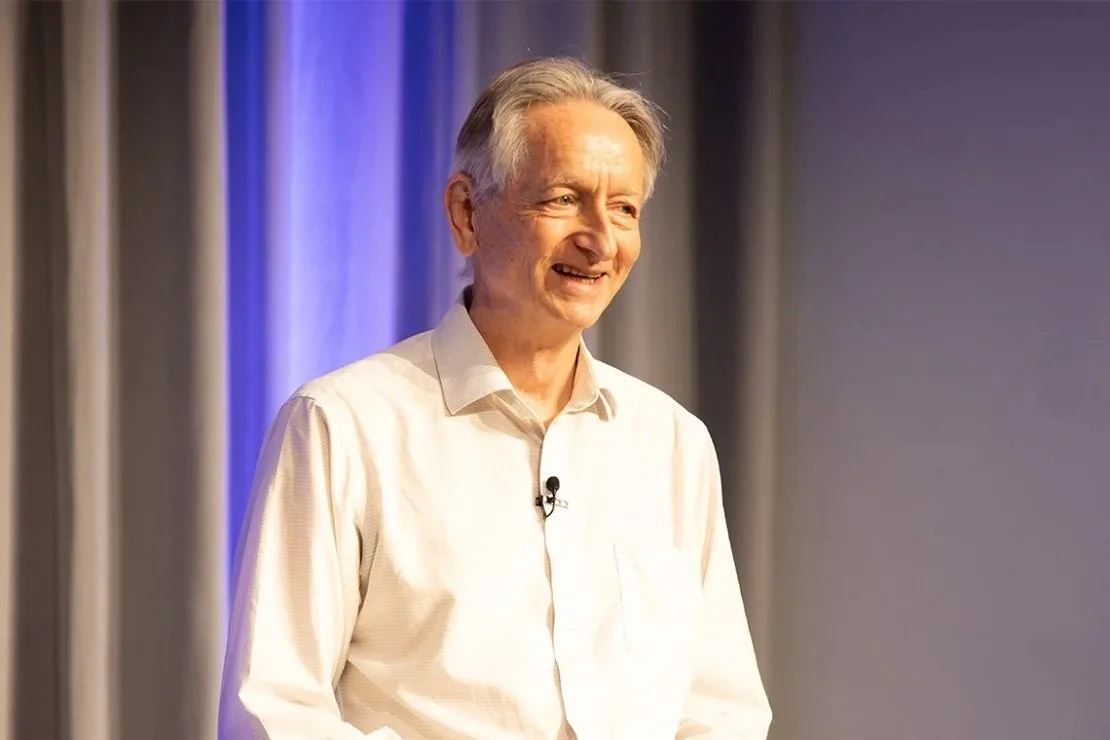Computer science researchers are recipients of Ontario provincial funding for their artificial intelligence projects on reinforcement learning; computer systems; and deep learning tools for heart failure prediction.
U of T computer science students unlock achievement at game design showcase
Maclean’s ‘The Power List: AI’ recognizes U of T CS faculty and alumni
Initiative trains U of T students to integrate ethical considerations into tech design
How will AI change our world? U of T podcast explores technology’s impact on society
New faculty spotlight: Roei Tell
At DGP Academy, high school students gain new perspectives on graduate school and computer graphics research
Video game design course and showcase propel student creativity into the spotlight
Alumna Patricia Thaine turns passion for finding patterns in language into career in online privacy
‘We’re improving patient safety’: How one CS grad is using AI to personalize health-care operations
CS alum Alex Lu is discovering new ways to apply deep learning in biology
New faculty spotlight: Niv Dayan
New faculty spotlight: Qizhen Zhang
Achieving alignment: How U of T researchers are working to keep AI on track
New faculty spotlight: Gururaj Saileshwar
Reflecting on ‘Social Issues in Computing,’ 50 years later
Web3, here we come: CS alum and Agora co-founder Kent Fenwick on the future of the internet
Geoffrey Hinton tops Toronto Life's list of most influential people
Tech research and innovation take centre stage at tenth annual ARIA showcase
Department of Computer Science welcomes its newest faculty members in 2023–2024
Get to know four recently hired faculty members, joining the Department of Computer Science throughout 2023 and 2024. Together with those whose arrival was announced in 2022, we extend a warm welcome to the newest members of our departmental community.
Aviad Levis
Assistant Professor
Joins July 1, 2024
Aviad Levis will join the Department of Computer Science in July 2024 as assistant professor. His work focuses on developing computational imaging tools for scientific discovery. After completing his PhD at the Technion in 2020, he joined Caltech as a postdoc working on imaging black holes with the Event Horizon Telescope. His research lies at the intersection of artificial intelligence and physics, working on interdisciplinary inverse problems in diverse fields, from astrophysics to climate.
Kuldeep Meel
Associate Professor
Joined July 1, 2023
Kuldeep Meel joined the Department of Computer Science in July 2023 as associate professor. Before moving to Toronto, he held NUS Presidential Young Professorship in the School of Computing at the National University of Singapore. His research interests lie at the intersection of formal methods and artificial intelligence. His research program's long-term vision is to advance automated reasoning techniques to enable computing to deal with increasingly uncertain real-world environments. His research program's recent recognition include the 2023 CACM Research Highlight Award, CAV-23 Distinguished Paper Award, DATE-23 Best Paper Award Nomination, 2022 ACM SIGMOD Research Highlight, 2022 ACP Early Career Researcher Award, and IJCAI-22 Early Career Spotlight.
Akshayaram Srinivasan
Assistant Professor
Joined July 1, 2023
Akshayaram Srinivasan joins the Department of Mathematical and Computational Sciences (University of Toronto Mississauga) as assistant professor. Before that, he was a reader at the Tata Institute of Fundamental Research, Mumbai. He received his PhD in Computer Science from the University of California, Berkeley. His research interests lie broadly in the theoretical foundations of Cryptography. His main focus is on constructing secure computation protocols that enable a set of parties to perform computation on their private inputs without leaking any other information. He is a recipient of the Google India Research Award (2022), and his research has been recognized with the best paper award at Eurocrypt 2018.
Roei Tell
Assistant Professor
Joined August 1, 2023
Roei Tell joined the Department of Computer and Mathematical Sciences (University of Toronto Scarborough) in August 2023 as an assistant professor. His research in theoretical computer science explores the limits of what algorithms can achieve efficiently, as part of a field called computational complexity theory. In recent years he has been studying new methods of simulating randomness for algorithms, and the implications of these methods on theoretical computer science (e.g., on understanding which problems are hard to solve, on designing interactive protocols for proving claims, and on building theoretically secure cryptographic systems). He completed his PhD at the Weizmann Institute of Science, and spent time as a postdoctoral researcher at MIT, at the Institute for Advanced Study and DIMACS, and as a fellow at Simons Institute for the Theory of Computing.























